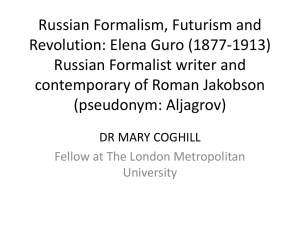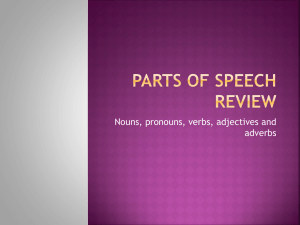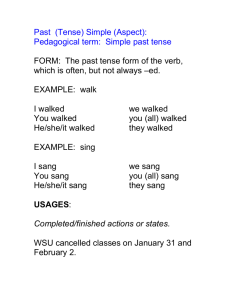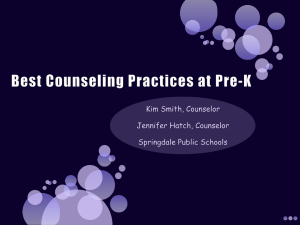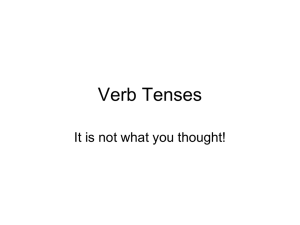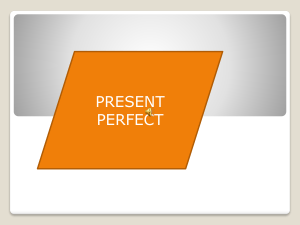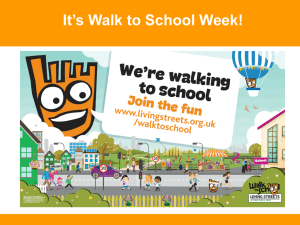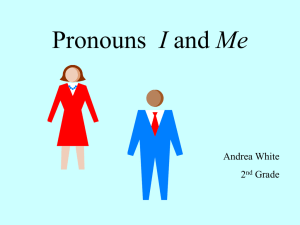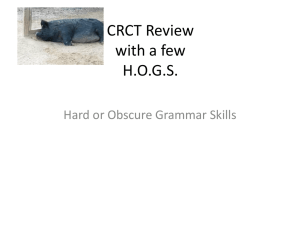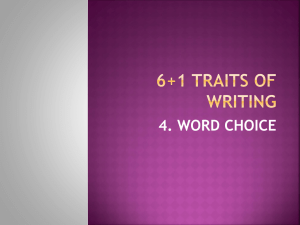Verb-Tenses
advertisement
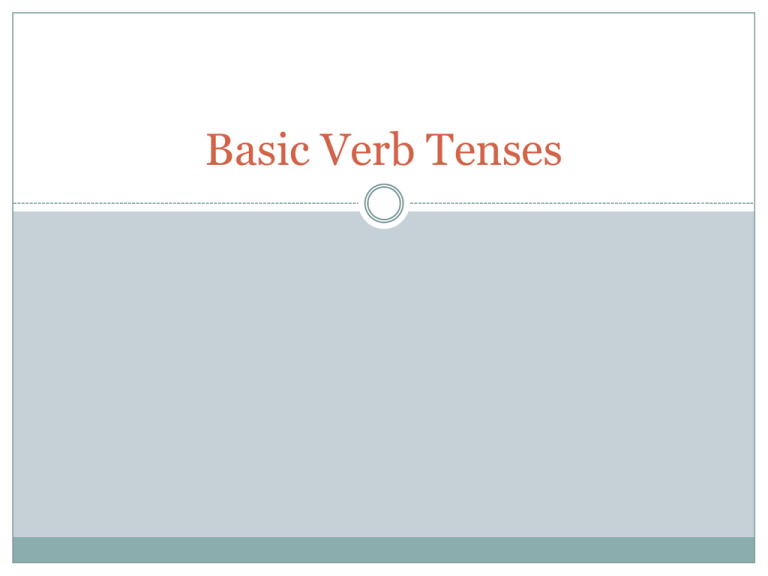
Basic Verb Tenses Present Tenses Simple Present This tense describes present actions that are habitual or facts that are always true. I walk You walk He/She/It walks We walk They walk Present Progressive This tense describes an action occurring at the moment of speaking or writing. I am walking You are walking He/She/It is walking We are walking They are walking What’s the difference? It can be easy to confuse the simple present and the present progressive tenses. In fact the two tenses can be used to describe the same action, but the speaker would use them at different times and in different situations. For instance, if you asked a friend what he or she was doing, the friend might reply: “I am going to the store.” However, if you asked your friend when he or she shops, the friend might say “I go to the store on Tuesdays.” Present Perfect Present perfect describes I have walked a present condition that is influenced by past events. “I have walked” means that I am in the condition of having walked. Though present perfect describes past events it is a present tense. You have walked He/She/It has walked We have walked They have walked Past Tenses Simple Past Use the past tense for events that happened in the past. I walked You walked He/She/It walked We walked They walked Past Progressive Past progressive still I was walking describes events that have already happened, but were ongoing, and is often used to compare an ongoing past event to an event in the simple past. Ex. I was eating lunch when I saw the car. You were walking He/She/It was walking We were walking They were walking Past Perfect Past perfect is used for I had walked past events which occurred prior to another past event. Ex.: I had eaten all the sandwiches when you got home. You had walked He/She/It had walked We had walked They had walked Future Tenses Simple Future Use the simple future tense to describe events that will happen in the future. I will walk You will walk He/She/It will walk We will walk They will walk Simple Future with “Going to” You can also use “going to” to describe future events. I am going to walk You are going to walk He/She/It is going to walk We are going to walk They are going to walk Future Progressive Use this tense for future I will be walking ongoing events. It is often used in the context of other future events. Ex. I will be running when the show comes on. Tip!: Notice how the second verb “comes” is in present tense, but still refers to a future event. You will be walking He/She/It will be walking We will be walking They will be walking Future Perfect The future perfect tense describes a future state influenced by events that took place prior to that time. It also uses a second verb in present tense that really talks about a future event. Ex. I will have eaten supper by the time you get home. I will have walked You will have walked He/She/It will have walked We will have walked They will have walked
